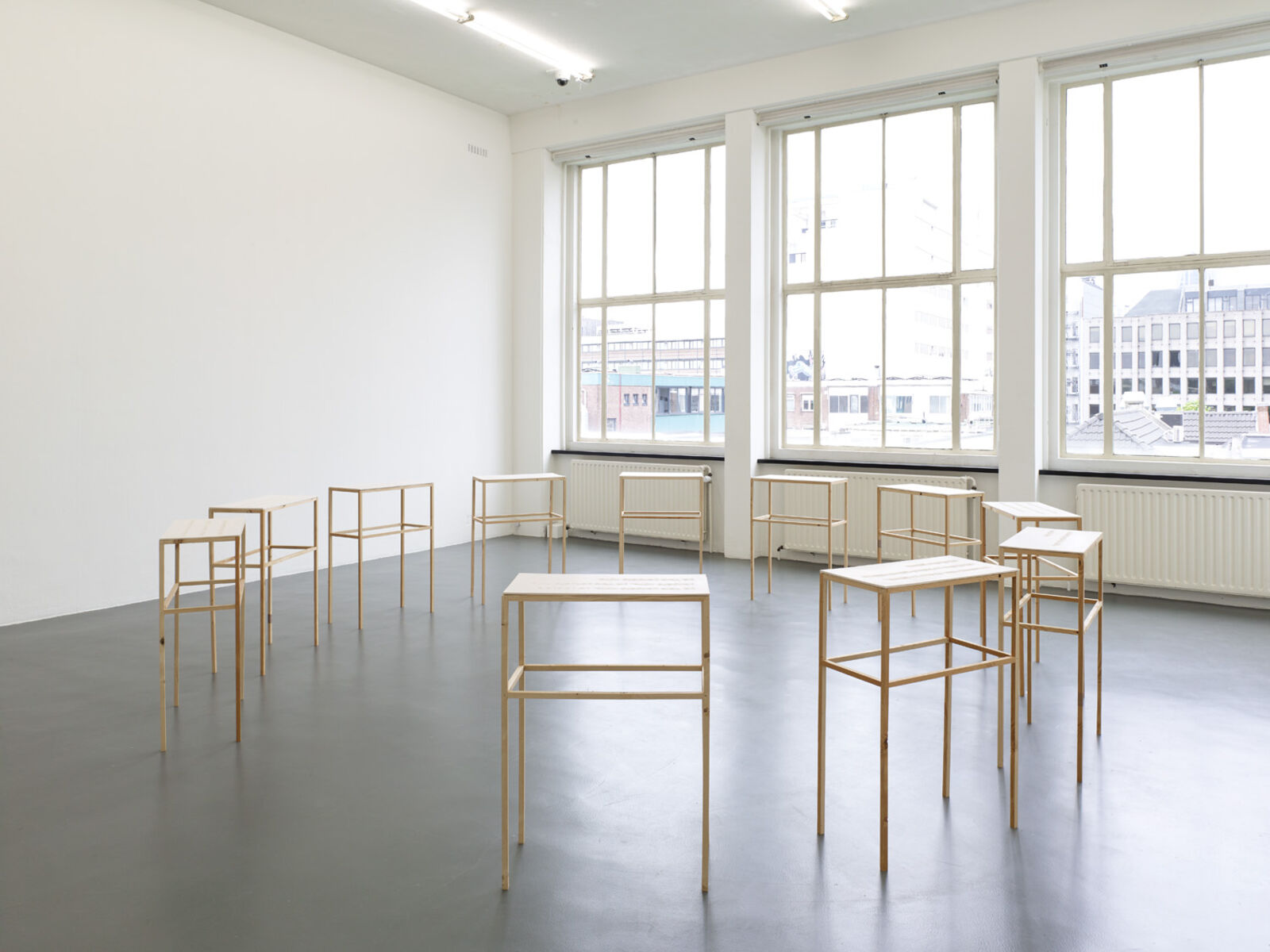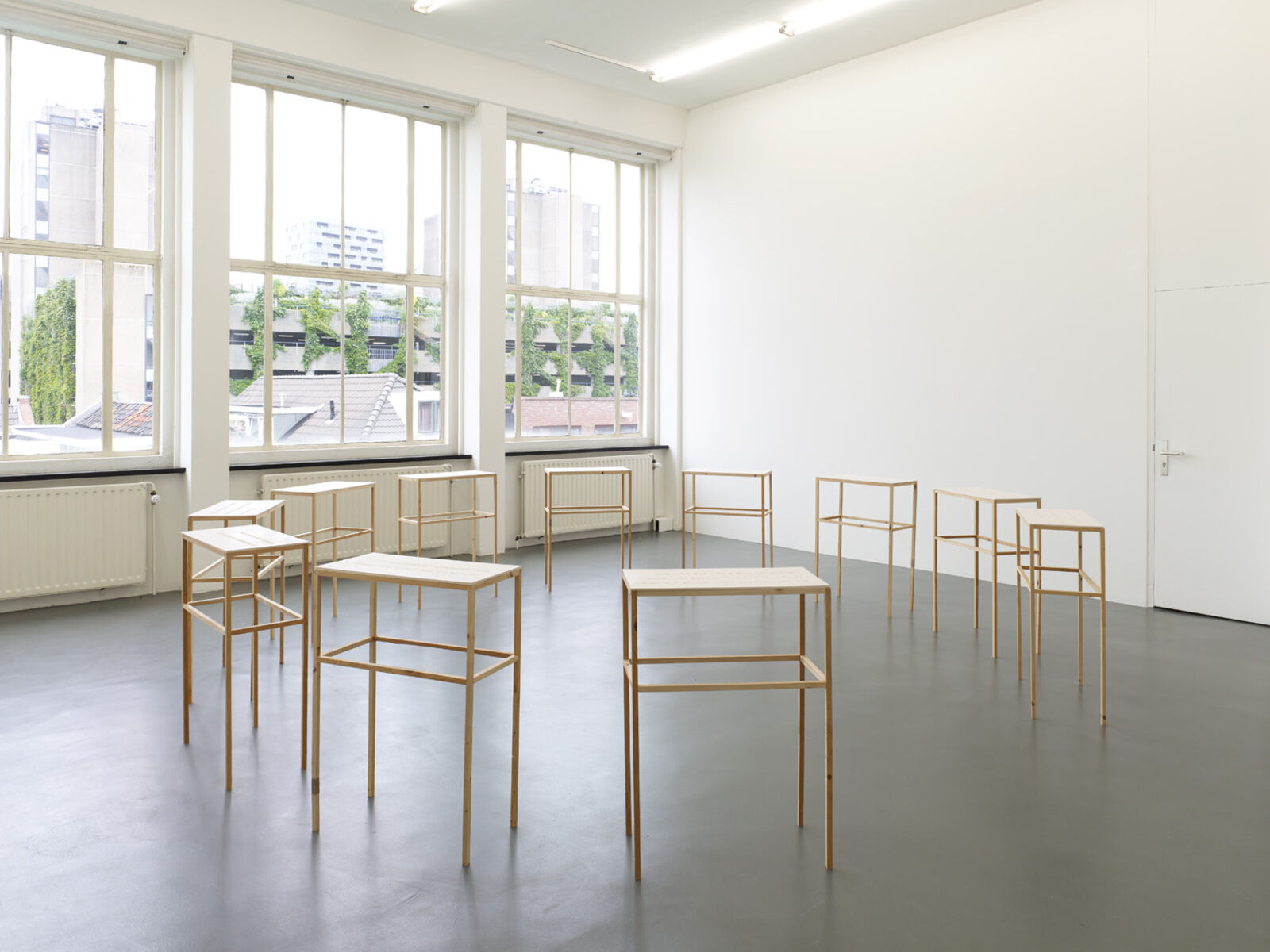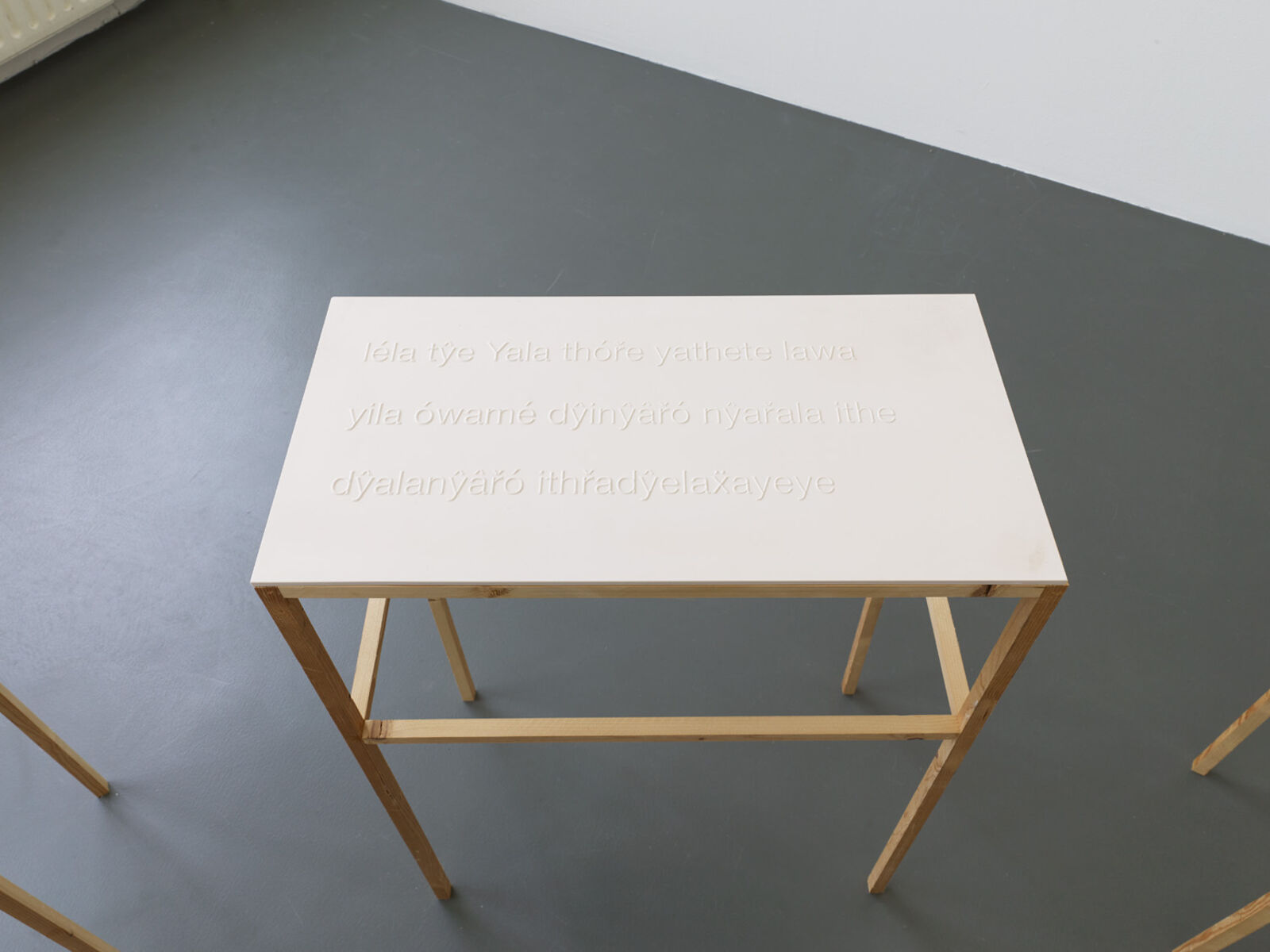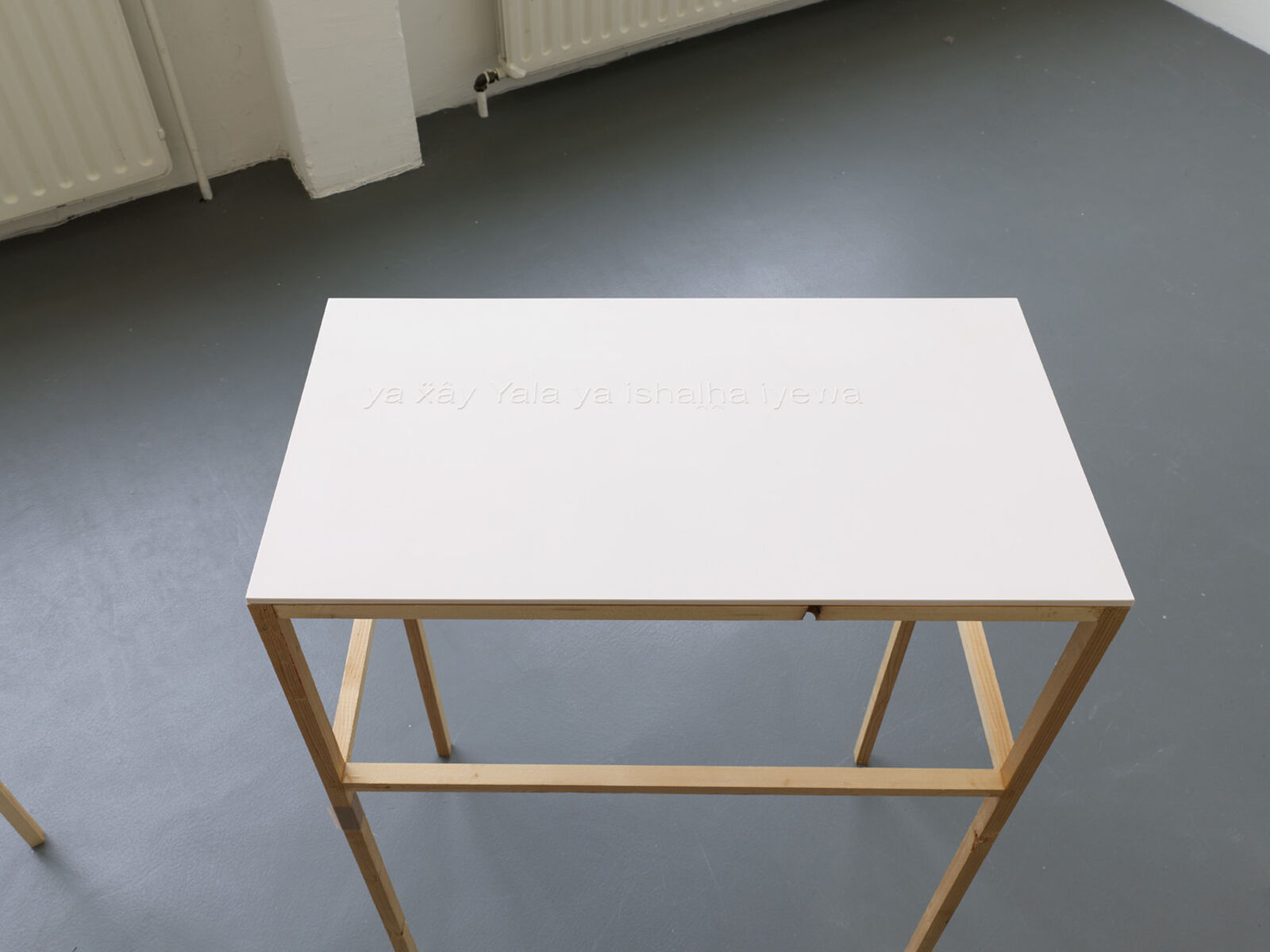RA Walden: xây ithřa, a pledge
Over the years, Germany and UK-based artist RA Walden has created work that explores the vulnerability of the body. Most recently, they have sought to disturb overly simplistic understandings of the disabled body, looking to bring into conversation with their work an ethics of care. Their practice spans installation, printed matter, performance, video, and coded arduino control systems, all of which they develop through a socially-engaged and research-led methodology.
For 84 STEPS, the artist presents a newly commissioned work, furthering their interest in the generative potential of access. Walden has done so through their creation of a new language—xây ithřa—initiated in response to the ableism and restrictive nature of English language. Formulated by the artist over a period of months in close collaboration with a linguist, xây ithřa exists as a 300+ word lexicon, complete with a basic grammar, confirmed phonology, and an ever growing set of idioms. Drawing on rich histories of queering lexicon—from argots and cants, to anti-languages and the use of constructed language within Sci-Fi and speculative fiction—Walden seeks to bring fluidity, ease, and “access intimacy” to those in sick, disabled, and trans bodies.(1) The artist uses world-building, not as a visionary tool for an imagined future, but as an embodied methodology for the present.
On a material level, presented in this gallery are a series of eleven statements that illustrate the fundamental concepts of the language. Each uses words describing elements and conditions of the earth to describe experiences of the human body. Created in relief, and accompanied by a sound-work, the language exists to be experienced through sight, hearing, and delicate touch. Accompanying the work, is a leaflet to be adopted as a guide through meaning, and a series of publications that offer a more in-depth exploration of xây ithřa and its methods of connection-building. An audio description of the work, as well as large-format text handouts, are available upon request.
1. The artist uses the term “access intimacy,” as one developed by the writer, educator, and community organizer Mia Mingus. Published in 2011 in her blog ‘Leaving Evidence,’ Mingus describes access intimacy as an “elusive, hard to describe feeling when someone else gets your access needs.”




